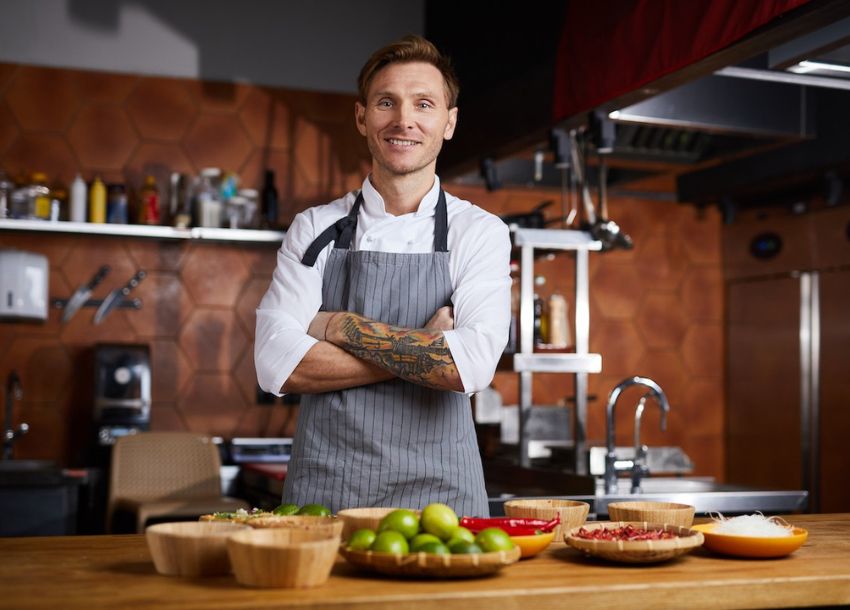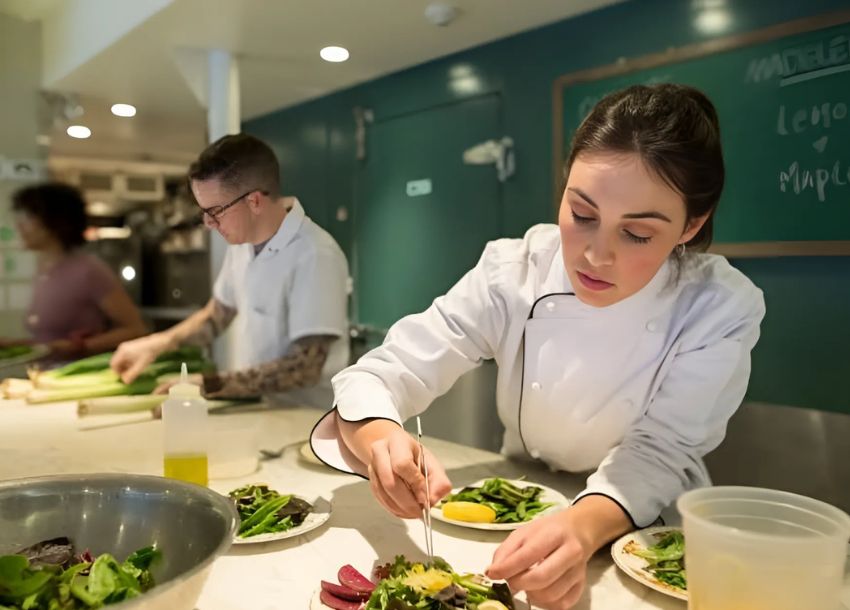Becoming a Private Chef: Steps, Salary & What You Need to Know
- Career Options
- Aug 24
- Share post

Becoming a private chef is one of the most exciting and high-profile moves a chef can make. The pay can be excellent and the work can take you around the world. But it’s not for everyone. A private chef role demands discretion, stamina and the ability to deliver at the highest level day after day.
This guide explains what a private chef really does, the skills you’ll need, what salaries look like in the UK and the steps to breaking into this exclusive career path.
What does a Private Chef do?
Unlike a restaurant chef who serves dozens or hundreds of covers, a private chef works for one household full-time. That could be a family, a celebrity, or an ultra-high-net-worth (UHNW) individual.
The role can involve:
- Cooking daily meals tailored to personal tastes and dietary needs.
- Designing seasonal menus, snacks and entertaining spreads.
- Catering for dinner parties, birthdays and events.
- Shopping for and sourcing ingredients directly from markets or suppliers.
- Travelling with clients on holidays, business trips, or to secondary homes.
- Managing kitchen budgets, stock and sometimes household staff.
It’s a role where food is only half the story. The other half is trust, discretion and service.
A typical day in the life of a Private Chef
No two days are alike, but here’s what a private chef’s routine often looks like:
Morning prep:
Review menus, confirm dietary needs and check deliveries. Source ingredients, sometimes personally from specialist markets.
Daytime cooking:
Prepare family breakfasts, packed lunches, or light meals. Keep menus balanced and personalised.
Event preparation:
If there’s a dinner party, spend hours creating multi-course menus, plating details and wine pairings.
Travel demands:
Many private chefs accompany families abroad, which could mean cooking on yachts, villas, or private estates.
Evening service:
Execute high-quality dinners, working seamlessly with household staff.
Clean down:
As with any kitchen, leaving the space spotless is part of the job.
It’s glamorous in parts – access to the best produce, luxury kitchens, global travel – but it’s also demanding. Long hours, isolation, and constant availability come with the territory.
Skills you need to succeed
Success as a private chef depends on a number of key items. Employers look for:
Culinary excellence:
Broad skills across cuisines and techniques, with the ability to adapt to client preferences.
Discretion:
You’re in someone’s home; privacy and professionalism are non-negotiable.
Organisation:
From shopping to stock management, you’ll often run the kitchen solo.
Flexibility:
Expect last-minute changes, dietary requests, or overseas travel.
People skills:
Build trust with clients and work smoothly with household staff.
Forums like Reddit are filled with stories of chefs saying the hardest part isn’t cooking – it’s adapting to client personalities.
Private Chef salary UK – what to expect
Private chefs in the UK can expect salaries typically above restaurant averages.
- Typical range: £45,000–£70,000
- Luxury/UHNW households: £100,000+
- Added perks: accommodation, travel, private healthcare and bonuses.
Compared to a Head Chef in a London restaurant (£35,000–£55,000), private chefs often see a big pay jump. But remember: you’re trading restaurant camaraderie for discretion, independence, and long hours.

Steps to becoming a Private Chef
There’s no single route, but these are the most common steps:
Gain high-end dining or hotel experience:
Fine-dining backgrounds are highly valued.
Build a strong portfolio:
Keep photos of menus, dishes, and events.
Get certified:
Level 2 Food Hygiene is essential; advanced cookery or nutrition diplomas are a plus.
Register with private chef agencies UK:
Agencies specialising in UHNW households can open doors.
Leverage referrals:
Word of mouth is powerful; excellent references are often the deal-maker.
Lifestyle considerations – pros and cons
Pros
- Higher salaries and strong perks.
- Travel opportunities (yachts, villas, estates).
- Creative freedom with menus.
- Prestige of working with high-profile clients.
Cons
- Irregular hours, including nights and weekends.
- Demanding clients with high expectations.
- Less social interaction compared to restaurant brigades.
- Constant need for discretion – what you see stays private.
Is becoming a private chef worth it? For many, yes – if you thrive on independence, enjoy travel and are willing to sacrifice routine.
Career path and opportunities
Private chef roles can lead to:
- Celebrity private chef positions.
- Working with UHNW families worldwide.
- Catering businesses or boutique consultancies.
- Teaching, workshops, or publishing cookbooks.
It’s a career where reputation travels fast. Deliver consistently and new opportunities often find you.
Final thoughts
Becoming a private chef is a unique career path – exclusive, well-paid, and often life-changing. But it’s not for everyone. If you’re ready for independence, prestige and the chance to work at the highest levels of hospitality, it could be the move that defines your career.
–
FAQs – Becoming a Private Chef
What are the steps to becoming a private chef?
Build fine-dining experience, get certified, create a portfolio and apply through agencies or referrals.
Is becoming a private chef hard?
Yes – it’s demanding. You’ll need stamina, discretion and the ability to adapt quickly.
Is this career path worth it?
For many chefs, absolutely. The pay and prestige are strong, but it comes at the cost of long hours and flexibility.
What’s the difference between a private and personal chef?
Private chefs serve one household full-time. Personal chefs juggle multiple clients with more flexible schedules.
Comments
Add a comment
Leave a Reply · Cancel reply
You must be logged in to post a comment.



